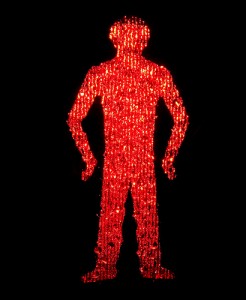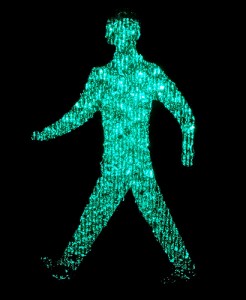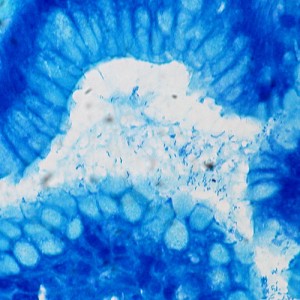Is chronic fatigue the bane of your existence? Learn how vitamin B12, the energy vitamin, can help you beat the midday slump. Here are twelve excellent tips for boosting energy in the afternoon and preventing fatigue.
Are you chronically fatigued?
Chronic fatigue is more than just being tired. With chronic fatigue, you wake up tired even after sleeping all night long. You get exhausted by the middle of the afternoon, every single day, even if you haven’t overly exerted yourself. You know that you’re more fatigued than you should be, more tired than other people your same age.
Tired of being Tired all the Time…It’s Tiring!
1- Boost energy with vitamin B12!
Vitamin B12 is called the energy vitamin for good reason! Vitamin B12 increases stamina, enhances cognitive functioning, shields your nerve cells, supports DNA synthesis, and helps to break down homocysteine, which is a molecule that is linked with heart attack and stroke.
Without healthy levels of vitamin B12 in your blood supply, you may experience severe symptoms of vitamin B12 deficiency, the most common one being constant fatigue, as diminished blood cells lead to diminished oxygen supplies, making your feel tired, unfocused, forgetful, lacking concentration, and downright depressed.
Even people who don’t have vitamin B12 deficiency can benefit from this crucial vitamin. Studies show that taking mega doses of vitamin B12 is great for increasing stamina, enhancing metabolic functioning, improving sports performance, and sustaining mental focus.
And since there’s no upper limit to taking vitamin B12, there’s no chance of overdosing or experiencing harmful side effects.
Will Vitamin B12 Boost Energy if I don’t have B12 Deficiency? YES!
2- You snooze, you lose!
Resist the urge to hit the snooze button in the morning- that extra five minutes doesn’t give you any quality restful sleep, and you’ll only end up feeling dazed and fatigued by noon.
3- Sit up straight!
Sitting hunched over your computer desk inhibits healthy breathing, causing less oxygen to the brain. This makes you feel dizzy and fatigued. It’s also bad for your posture, and causes backaches, headaches, and neck aches. Instead, make a point of reminding yourself every half hour to sit up with your back straight.
4- Don’t skip a meal!
Do you brunch? Combining breakfast and lunch in one meal might seem like a great time saver, but you’re actually guaranteeing an energy crash in the afternoon. Skipping meals causes your blood sugar to drop, causing fatigue, nervousness, and poor concentration.
For optimum energy in the afternoon, opt for small regular meals containing high fiber, iron, and protein-rich foods.
5- Have a cuppa!
Caffeine doesn’t deserve the bad rap it’s been getting. Used responsibly, caffeinated beverages can help you perform better at work, reduce fatigue, and get past the afternoon slump.
Limit yourself to one or two cups of coffee per day, and you’ll reap all the energy-boosting benefits of caffeine without the addiction and withdrawal symptoms.
6- Hydrate yourself!
You may be dehydrated without even knowing it! Even minor symptoms of dehydration include fatigue and dizziness. So keep a water bottle at your work desk, by your bedside, and next to your telephone, and drink up!
7- Take five!
Sitting for long periods increases your risk of heart disease and obesity; it also causes fatigue! Even if it’s not your lunch break, take a few minutes to stand up, stretch your arms and legs, and rotate your head a few times. If you have access to an open window, even better! Take a few gulps of fresh air and you’ll feel less fatigued, and more energized.
8- Mix it!
Every now and then, it’s great to break from your humdrum routine. See if some of your work duties can be accomplished outdoors, or in a different setting. Take a different path to work. Even something simple like redoing your desk display can help to dispel the monotony of the workday and revive enthusiasm.
9- Be social!
You don’t have to hang out at the water cooler to interact with people. Take the opportunity in passing to strike up a quick conversation with somebody, or just pop in for a moment to say hi. It’ll improve your mood and increase energy.
 10- Chill!
10- Chill!
As the “witching hour” approaches, head off fatigue by splashing some cold water on your face, wiping your neck with a scented towelette, or even sucking on a few ice cubes. Cold is invigorating and excellent for fighting fatigue.
11- Don’t stress!
Stress and anxiety are energy draining and fatigue producing. To beat fatigue, try to stay focused on positive thoughts, and don’t allow negative thinking to ruin your day. Learn how to meditate, so that when you’re stressed, you will know how to get yourself into a state of relaxation.
Please tell us…
Do you suffer from chronic fatigue? If so, have you checked your vitamin B12 levels?
Do you have any questions or suggestions? Please leave your comments below.
Share with your friends!
If you found this article helpful, then please share with your friends, family, and coworkers by email, Facebook, or Google+.
Read more about vitamin B12, the energy vitamin!
5-Hour Energy Drinks with Vitamin B12- What’s the Catch?
Chronic Fatigue Syndrome- What is it, exactly?
Sources:
Fight the Midday Slump: Six Missteps That Cause Fatigue
Images: photostock, graur codrin, Stuart Miles, David Castillo Dominici,




























